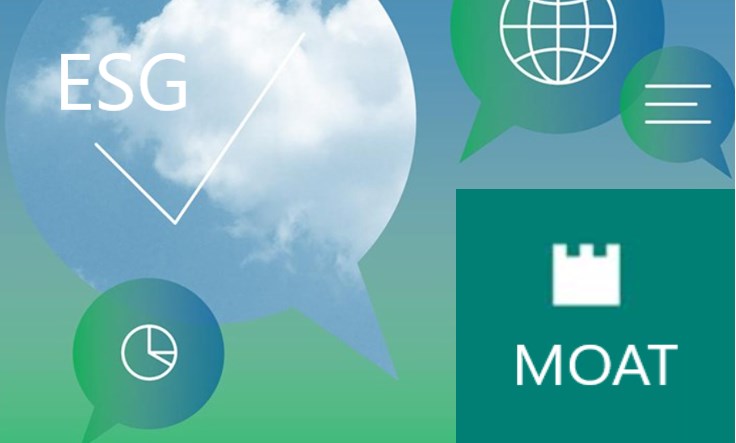
Sustainable funds do not constitute an asset class of their own; they invest across capital markets. In evaluating the future performance of a fund, investors can use Morningstar Analyst Ratings, which expresse our analysts’ expectations that a fund will be able to outperform its category benchmark index over time.
The Morningstar ESG Commitment Level, which made its debut in 2020, expresses analysts’ qualitative research on the extent to which asset managers and funds incorporate ESG considerations into their investment processes.
The ESG Commitment Level is also complementary to the existing Morningstar Sustainability Rating. The latter is a quantitative holdings-based measure of a fund’s ESG risks relative to category peers. Investors may find it helpful to use the two measures in tandem, but they are separate—one qualitative and based on an overall assessment of a strategy, the other quantitative and based on the ESG risks of a strategy's portfolio holdings.
This year, Morningstar analysts took a set of 251 funds, representing 140 active and passive strategies, and 31 asset managers, under a qualitative review. Out of the 31 asset managers assessed, only one was awarded our top accolade of Leader, Australia's Affirmative Investment Management (AIM). The firm, established in 2014, has earned the top accolade in its sustainable fixed-income investing.
“Responsible investing is integral to everything AIM does,” says Chris Tate, Sydney-based Manager Research Analyst at Morningstar. The boutique manager earns a higher ESG standing above other asset managers for its dedicated sustainability team, extensive and proprietary sustainability and credit analysis and transparent reporting in the financial, environmental, and social impact across all portfolios.
Currently, Affirmative Investment Management does not distribute to retail investors in Hong Kong, Singapore and Taiwan.
Five firms, including Amundi, BNP Paribas Asset Management, HSBC Global Asset Management, Jupiter, and LGIM earned the Advanced level.
Policy, Practice and Transparency
The ECL is awarded to both strategies and asset managers following a four-tier scale: Leader, Advanced, Basic, and Low. The ECL conclusion comes from three aspects – policy, practice and transparency. The best practice, or the ‘Leader’ grade of policy means a detailed guidance, that comes with investor briefs on asset manager’s position on key ESG themes. Top practices point to collaborative engagement efforts. They are planned under multiple stages and effectively reaches shareholder resolutions. On transparency, it is desirable to see asset managers reporting full record and summary of vote online, accompanied with vote rationales wherever there is ESG-driven votes against management. Engagement report should also explain engagement process comprehensively and offer illustrative case studies.
This year, a total of 16 funds available for sale in Hong Kong, Singapore or Taiwan are included in the latest Morningstar ESG Commitment Level report.
Source: Morningstar. The ESG Commitment Level is collected from both 2020 and 2021 reports. * The region for sale column shows only across Hong Kong, Singapore or Taiwan.
Among them, Fidelity Sustainable Asia Equity is one fund that is leading the way when it comes to ESG investing with ‘Advanced’ level in this ESG-intentional equity strategy.
Fidelity Sustainable Asia Equity A-Dis-USD
Fidelity Sustainable Asia Equity W Acc
ESG Commitment Level: Advanced
Asset Manager: Fidelity International
The Fund was renamed from Fidelity Asia Focus from Feb. 24, 2021 to reflect an adoption of a sustainability mandate. According to Morningstar analysts, the enhancements were made to its already compelling sustainability focus. Thus, the strategy can factor in ESG considerations in a more systematic and binding way.
Before the changes, lead manager Dhananjay Phadnis had always paid close attention to environmental, social, and governance factors. As early as 2019, Phadnis has applied exclusionary screens to remove undesirable sectors that are exposed to material ESG risks, with initially excluding firms with sizable involvement in tobacco businesses. Now, the exclusion is further extended to oil/gas extractors, controversial weapons, and thermal coal mines, which in total amounts to 3% of the MSCI AC Asia ex Japan Index.
Our analysts say that there are areas worth monitoring. First, this is the first true ESG strategy Phadnis has managed. Phadnis is well supported by a seasoned engagement specialist, Flora Wang who was recently appointed as associate portfolio manager. Wang joined Fidelity in 2019 from BlackRock, where she served as head of investment stewardship. It is believed that Wang’s presence on theteam should provide an added layer of comfort. In the process, Phadnis is supported by a broader framework of proprietary, forward-looking ESG ratings. The internal ratings are undertaken by the large Asia Pacific ex-Japan fundamental analyst team, which will play an influence Phadnis’ decision in stock selection and portfolio construction.
In portfolio holdings, the strategy strives to maintain a lower carbon footprint than the index, with a commitment to having at least 70% of portfolio assets invested in equities with average-to-above-average ESG characteristics and will actively engage with companies below that threshold. Currently, no reduction target has been set.
Lastly, the team is still working on formalizing its divestment policy, with Phadnis being less involved with proxy voting than higher-rated peers. While active ownership reporting is reasonably detailed at the parent level, it’s not yet there at the strategy level.
Globally, evidence has been building that ESG investments can provide a cushion in portfolios to protect against stock market declines and volatility. The effect of weathering downturns has appealed to an increasingly broader group of investors. Across asia ex Japan, investors have displayed interests in allocating to funds with responsible investing objectives. A major takeoff of sustainable funds was recorded in the first quarter of 2021, absorbing an estimated inflow of US$ 8 billion. Funds with sustainable investing objective take a substantial and growing portion of the fund universe. At the end of March 2021, more than US$ 35 billion is managed under sustainable funds.
©2021 Morningstar. All rights reserved. The information, data, analyses and opinions presented herein do not constitute investment advice; are provided as of the date written, solely for informational purposes; and subject to change at any time without notice. This content is not an offer to buy or sell any particular security and is not warranted to be correct, complete or accurate. Past performance is not a guarantee of future results. The Morningstar name and logo are registered marks of Morningstar, Inc. This article includes proprietary materials of Morningstar; reproduction, transcription or other use, by any means, in whole or in part, without prior, written consent of Morningstar is prohibited. This article is intended for general circulation, and does not take into account the specific investment objectives, financial situation or particular needs of any particular person. Investors should consult a financial adviser regarding the suitability of any investment product, taking into account their specific investment objectives, financial situation or particular needs, before making any investment decisions. Morningstar Investment Management Asia Limited is licensed and regulated by the Hong Kong Securities and Futures Commission to provide investment research and investment advisory services to professional investors only. Morningstar Investment Adviser Singapore Pte. Limited is licensed by the Monetary Authority of Singapore to provide financial advisory services in Singapore. Either Morningstar Investment Management Asia Limited or Morningstar Investment Adviser Singapore Pte. Limited will be the entity responsible for the creation and distribution of the research services described in this article.












.png)



.jpg)





